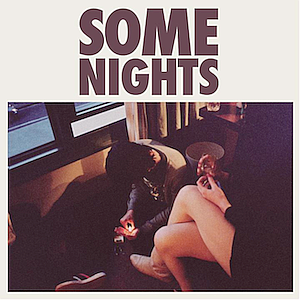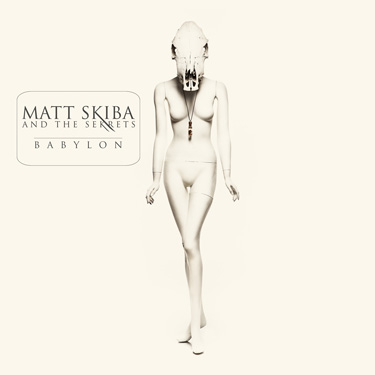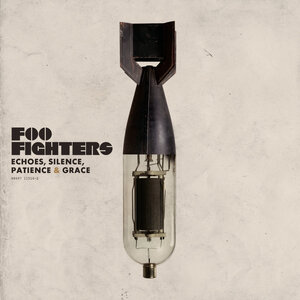Often, I’m approached by people asking “M!ke, how do you find out about new artists and stay up to date about new music coming out?”
Or better yet, “How do you know so MUCH about music?
I’m not the end-all-be-all authority when it comes to music by any means. Hell, I can’t even keep up with this blog as often as I’d like so I’m a bit taken back when regard me as this enlightened intellectual. For one, I see myself as a sort of sponge that gets lucky in what he soaks up. However, most of the information I do get about music is by directly talking to people. You’d be surprised what can be gleaned in the lost art of conversation. I remember once picking my friend’s brain about the new 1997 album A Better View Of The Rising Moon and having the discussion turn into a dialogue about the so-called “alternative movement” in the 90s. For about 2 hours, we reasoned out what bands like Weezer and The Smashing Pumpkins meant for the music culture.
Get people talking, and you’ll be amazed at the nuggets you’ll walk away with.
Conversation aside, there are some concrete places that I go for daily music news and places I feel will provoke your own thoughts about music. Here are some great places that I feel are worth beginning at as stepping stones.
Whether or not you dig Jason Tate as a webmaster, you have to admire how up to date his website is. And unlike the name implies, the music discussed draws from a wide variety. Their album reviews are decent as they tend to give in-depth track by track dissections. While those who participate in their message boards tend to be a bit juvenile at times, it’s a good place for someone to keep up to date with studio releases from respected artists.
This is as close to a musical encyclopedia as you can get. Type in your favorite artist and get treated to a bio page with links to album reviews, descriptions of their sound, similar artists, etc. I cannot tell you how many bands have made their way into my music library through this website. While you might not always agree with their reviews, they actually examine the music from a craft standpoint rather than a trends standpoint. It’s a great alternative to mainstream music publications and elitist indie zines.
The issue of piracy, downloading, and purchasing music is always a sticky subject. Personally, I think it’s the craft of music that matters more than the corporate pigs and when you take into account what record labels charge for CDs nowadays, it’s disgusting. For those that are like me and keep up with album leaks, Did It Leak? is the perfect place for you. It gives daily information about new albums that have hit the p2p networks. Whether or not you download music, it’s good to know what’s out there. And maybe, have a small morsel before release day comes.
Of the more well-respected music blogs, this has got to be a top choice for me. Unlike tons of blogs that won’t touch it if it’s not super-scene or indie, I Guess I’m Floating does a good job of balancing both worlds. They have a great feature called “Thursdays With Covers” in which they’ll post about three obscure covers by great artists such as of
Ixnay & Alli’s Complete AFI Series
This is one of the first music forums I ever joined and I feel it’s one of the best out there. While it is a fan site dedicated to AFI, I find myself visiting the general music section in the message board to see what people are listening to. Any forum has a music section (And this helps spur conversation kids!) but of all the forums I’m a part of, it’s the people that make AFI Series so interesting. The posters here aren’t going to take things at face value; they will analyze it and pick it apart. The flood of different opinions makes this forum a rich source of information.
This little dandy first attracted me due to the fact that its network syncs up to your media player and records your listening habits. It’s has very specific breakdowns of what songs you play and also provides online radio stations based on those habits. Much like any forum you can think of, this is also a social networking website that will allow you to compare music tastes from people all over the globe. And like AllMusic.com, there are in-depth bio pages and similar artist lists to help you delve into new music you might not have heard about.
Aikin, the mastermind behind this blog, actually gave me the idea for this posting when he sited my own blog in his “Blogroll.” I actually stumbled across Licorice Pizza by accident but frequent it because of the interesting content. Aikin has a keen sense for discussing what makes good hard rock music, while implementing a great balance of mainstream and underground bands. His writing style is informative and clear for any person no matter what musical background they’re from.
While a bit more concentrated specific artists than I usually like, The Music Slut is a fun and informative website for current music news. While they have their favorites (Morrissey, Amy Winehouse, Radiohead, etc.) the site does a great job with having continuous updates throughout the day. Chances are if you check this blog in the morning, they’ll have added some stories by the time you check it after work. They also have a great feature called “The World Of B-Sides & Rarities” where they’ll post obscured b-sides for blog visitors. I’ve discovered 3 Radiohead songs on this site that I never knew existed. Definitely worth your time.
Lastly, this is a fun website that will broaden your horizons and your tastes. It’s an interactive (And free!) internet radio that allows you to sculpt and customize radio stations to your personal tastes. They will then play random tracks based on the artists you’ve specified in your stations. The neat thing is that if gives you the musical similarities between the artists and why they are similar. A lot of it is music jargon that might be slightly over the head of people that aren’t music savvy but it’s a good place to start without going crazy over theory. The other downside is that copyright laws limit some of the music that is available on Pandora. Aside from that, however, it’s a great legal way to explore new music.
So there you have it, the places I go to be informed and up to the minute. I hope they’re as helpful for you as they are for me.





















